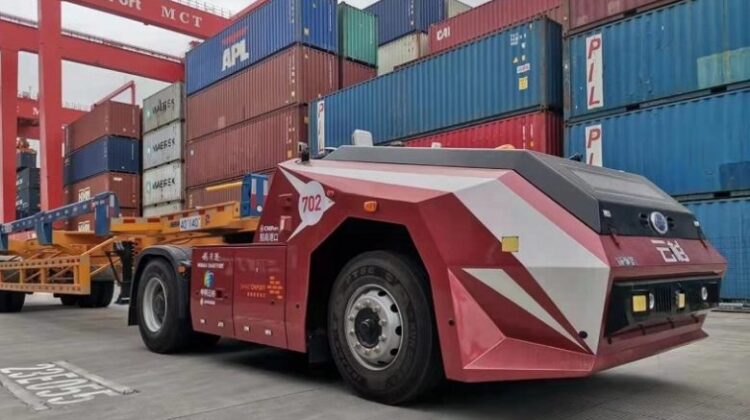
China Merchants takes autonomous trucking to the next level
SHANGHAI : China Merchants Port (CMPort) is deploying digital perception radar in a fleet of autonomous trucks operating at its Mawan Smart Port in Shenzhen.
Delivered by US-based Uhnder and China’s Yunshan Technologies, the digital perception radar is said to ensure an autonomous truck arrives in the correct position, to within 5 cm, for automated container movement between the ship and storage or departure areas.
The Mawan Smart Port is CMPort’s leading project site for the deployment of the latest intelligent port technologies.
“Smart port development is of key importance for CMPort,” said Wang Pei, CEO of China Merchants International Technology Limited (CMHIT), a subsidiary of CMPort specialising in port, terminal, and logistics technology solutions that leads the Mawan Smart Port project. “We are deploying the newest digital radar sensing technologies in our fleet of autonomous trucks to enable efficient and safe operation, even in extremely challenging conditions due to rain, fog, or dust.”
“Uhnder is focused on the logistics mobility market, and shipping port automation is one of the early adoption use cases of digital radar technology,” said David Loadman, VP business development, Uhnder. “The exceptional results we expect to see from the partnership with Yunshan will demonstrate how Uhnder digital radar technology can accelerate smart port automation.”
China Merchants’ compatriot Cosco Shipping Ports is also working towards autonomous operations at its ports.
Last year it partnered with Dongfeng Commercial Vehicle and China Mobile to develop so-called 5G smart ports with Xiamen Ocean Gate Terminal serving as a testbed for much of the new technology including the use of automated driverless trucks.
For Graham Porter, the famous co-founder of Seaspan and now head of Tiger Group Investments, the biggest change coming in the business of logistics is automatic trucking, likely in combination with battery propulsion.
“This will redefine the logistics of the world,” Porter Porter told Shipping in 2030, a special magazine published on this site last year in association with MacGregor. “Efficiencies will improve dramatically, essentially highway trains will come about, with cargo moving 24 hours a day as there will be no limiting human driver and mandatory rest breaks. It will all be optimised to avoid rush hours. This could potentially redefine which ports are winners, displacing some of the old names.”
Source : Splash247.com

